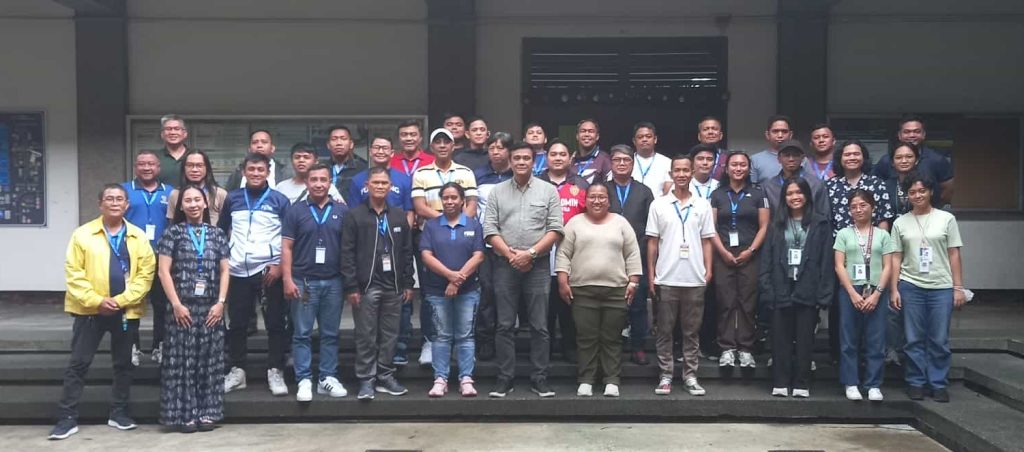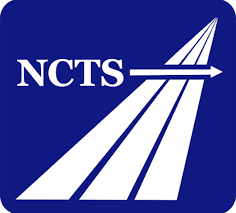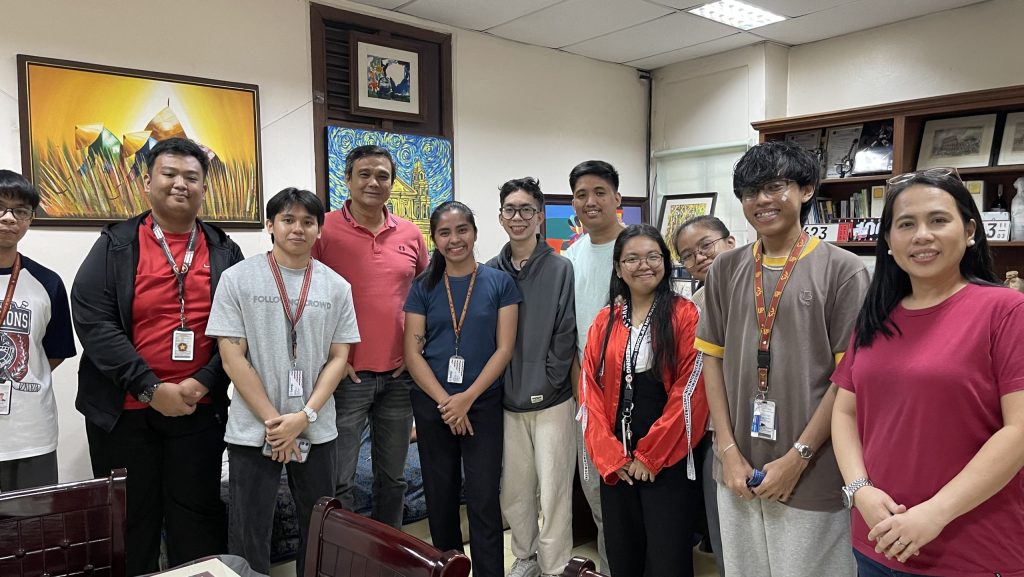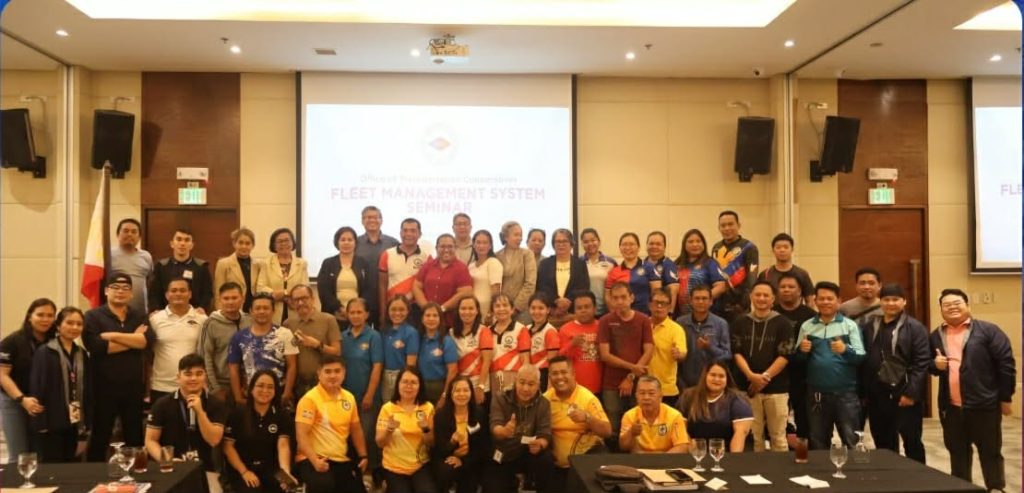
The University of the Philippines National Center for Transportation Studies (UP NCTS) successfully concluded its Advanced Traffic Administration Course (ATAC) held from November 17–21, 2025, bringing together traffic and transport professionals from key local government units and private sector organizations across the country.
Participants hailed from Laoag City, San Fernando (La Union), Baguio City, Santa Rosa City, Pasig City, as well as representatives from CTI and Hydronet. The five-day intensive program aimed to strengthen the technical competencies of traffic operations heads, planners, transport managers, and officers in effectively managing urban mobility systems and addressing emerging transportation challenges within their jurisdictions.
The course featured seven comprehensive modules covering critical aspects of traffic management, including travel demand forecasting, public transportation system analysis and planning, physical distribution and logistics, environmentally sustainable transport (EST), and transportation system evaluation. These sessions were delivered by distinguished resource persons: Atty. Mercy Jane Paras-Leynes, Engr. Aileen U. Mappala, Dr. Sandy Mae A. Gaspay, Dr. Jun T. Castro, Dr. Ma. Sheilah G. Napalang, EnP. Geoel Anthony Y. Esguerra, and EnP. Jerome Ballarta.
Participants also took part in two hands-on workshops, where they analyzed real-world traffic issues and developed practical, context-specific solutions for improving mobility and safety in their localities.
A major highlight of ATAC was the experiential learning activity, where participants conducted field visits to four major transport terminals:
During the fieldwork, participants rode various public transport modes and evaluated their travel experience using key indicators such as accessibility, waiting and boarding conditions, vehicle condition, ride comfort, fare and payment systems, safety and security, inclusivity, and intermodal transfers. They also assessed terminal operations through the lens of EST principles and identified areas for improving passenger experience, service efficiency, and operational coordination. One group assigned to PITX even received an impromptu guided walk-through of the facility, further deepening their appreciation of terminal operations and management.
As part of the course requirements, participants produced 30-second social marketing campaigns promoting selected public transport modes. These outputs demonstrated their creativity and their understanding of communications strategies that encourage sustainable and efficient mobility choices.
UPIS student interns also joined the field activities, supporting documentation efforts and offering a youth perspective on public transport service quality. Their participation underscored the importance of nurturing early interest in transportation planning and mobility advocacy among young learners.
ATAC 2025 reaffirms UP NCTS’ commitment to empowering LGUs and transport institutions in advancing traffic management, promoting sustainable mobility, and building resilient and efficient urban transport systems. By equipping participants with advanced technical skills and real-world exposure, the course contributes to improving mobility, safety, and overall transport performance across Philippine cities.
For more information about our training programs, please visit the Training section of the NCTS website: https://ncts.upd.edu.ph/training_sub/training-schedule.
Participants hailed from Laoag City, San Fernando (La Union), Baguio City, Santa Rosa City, Pasig City, as well as representatives from CTI and Hydronet. The five-day intensive program aimed to strengthen the technical competencies of traffic operations heads, planners, transport managers, and officers in effectively managing urban mobility systems and addressing emerging transportation challenges within their jurisdictions.
The course featured seven comprehensive modules covering critical aspects of traffic management, including travel demand forecasting, public transportation system analysis and planning, physical distribution and logistics, environmentally sustainable transport (EST), and transportation system evaluation. These sessions were delivered by distinguished resource persons: Atty. Mercy Jane Paras-Leynes, Engr. Aileen U. Mappala, Dr. Sandy Mae A. Gaspay, Dr. Jun T. Castro, Dr. Ma. Sheilah G. Napalang, EnP. Geoel Anthony Y. Esguerra, and EnP. Jerome Ballarta.
Participants also took part in two hands-on workshops, where they analyzed real-world traffic issues and developed practical, context-specific solutions for improving mobility and safety in their localities.
A major highlight of ATAC was the experiential learning activity, where participants conducted field visits to four major transport terminals:
- Parañaque Integrated Terminal Exchange (PITX)
- One Ayala Transport Hub
- Valenzuela Gateway Complex (VGC)
- Robinsons Antipolo Transport Terminal
During the fieldwork, participants rode various public transport modes and evaluated their travel experience using key indicators such as accessibility, waiting and boarding conditions, vehicle condition, ride comfort, fare and payment systems, safety and security, inclusivity, and intermodal transfers. They also assessed terminal operations through the lens of EST principles and identified areas for improving passenger experience, service efficiency, and operational coordination. One group assigned to PITX even received an impromptu guided walk-through of the facility, further deepening their appreciation of terminal operations and management.
As part of the course requirements, participants produced 30-second social marketing campaigns promoting selected public transport modes. These outputs demonstrated their creativity and their understanding of communications strategies that encourage sustainable and efficient mobility choices.
UPIS student interns also joined the field activities, supporting documentation efforts and offering a youth perspective on public transport service quality. Their participation underscored the importance of nurturing early interest in transportation planning and mobility advocacy among young learners.
ATAC 2025 reaffirms UP NCTS’ commitment to empowering LGUs and transport institutions in advancing traffic management, promoting sustainable mobility, and building resilient and efficient urban transport systems. By equipping participants with advanced technical skills and real-world exposure, the course contributes to improving mobility, safety, and overall transport performance across Philippine cities.
For more information about our training programs, please visit the Training section of the NCTS website: https://ncts.upd.edu.ph/training_sub/training-schedule.



